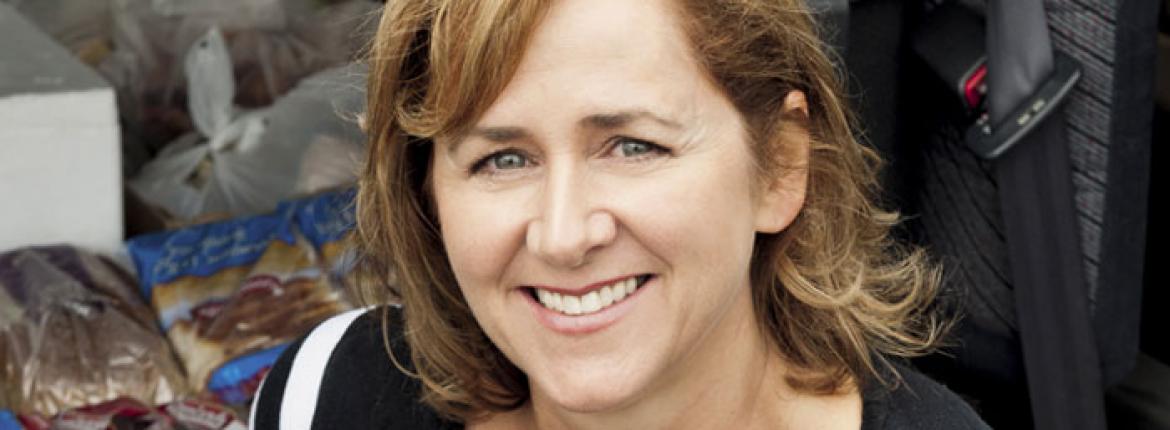Deborah: I had been working in Dunedin as a lawyer for several years and felt a personal need to do something different, something more for my community. I saw a need to bridge the gap between businesses throwing away fresh, nutritious food at the end of the day and the food banks and social service agencies in desperate need of it.
I started to research food rescue organizations, and approached the people who are now on our board to ask whether they would be interested in helping me get this off the ground.
Foodshare operated for six months in start-up mode, where a friend and I collected the food and transported it in chilly bins to the agencies. After six months we felt confident the system worked so, then, we needed to become financially viable as a business. Like any charity, it’s about finding the money to operate, so we fundraised and approached businesses for sponsorship.
Now I have volunteers who work for Foodshare and we each have a day — today was mine. I started at 9am and collected about 100 loaves of bread from Couplands bakery and then went to Wishbone — which was basically the first business that came on board. I already had about 30kg of tinned food that I’d picked up from a local wholesaler (because if a tin gets dented, they can’t sell it) and I took it all to the food bank allocated for today. They put it in their fridges and, as their clients come in, they fill up their bags with lovely sandwiches and pies, quiches and fresh vegetables, and loaves of bread – all of which would have otherwise been thrown away.
The food that we collect is all food you would buy yourself. We say to our volunteers when they’re sorting it, ‘If you wouldn’t eat it yourself, then throw it away. It doesn’t go out to anyone else’. But, most of it is pre-packaged anyway, so it’s easy to maintain the integrity of the food.
Like any business that’s growing, I could put as many hours as there are in the day into it. It’s really just a matter of trying to grow it slowly, so that we get it right. Each week I approach new businesses and continue to fundraise and get grant applications in so that we can grow.
I would love to see a food rescue organization in every major city in New Zealand within five years. How we get that to happen is by starting off small, convincing businesses that it’s a good idea; and, at the same time, convincing councils, the Government and the administrators of funding grants to see the value in investing in businesses like Foodshare.
It’s incredibly rewarding to be involved in something like this, and I’ve found the businesses in Dunedin are delighted to find a way to give back to their community. I’ve just had a phone call from Otago Polytechnic to say they have a whole lot of leftover food from a lunch and if we want it, we can have it. So, we’ll take that to one of the agencies feeding people and there’s lunch or dinner. And it was all just going to be thrown away.
Reported for our AA Directions Autumn 2024 issue




